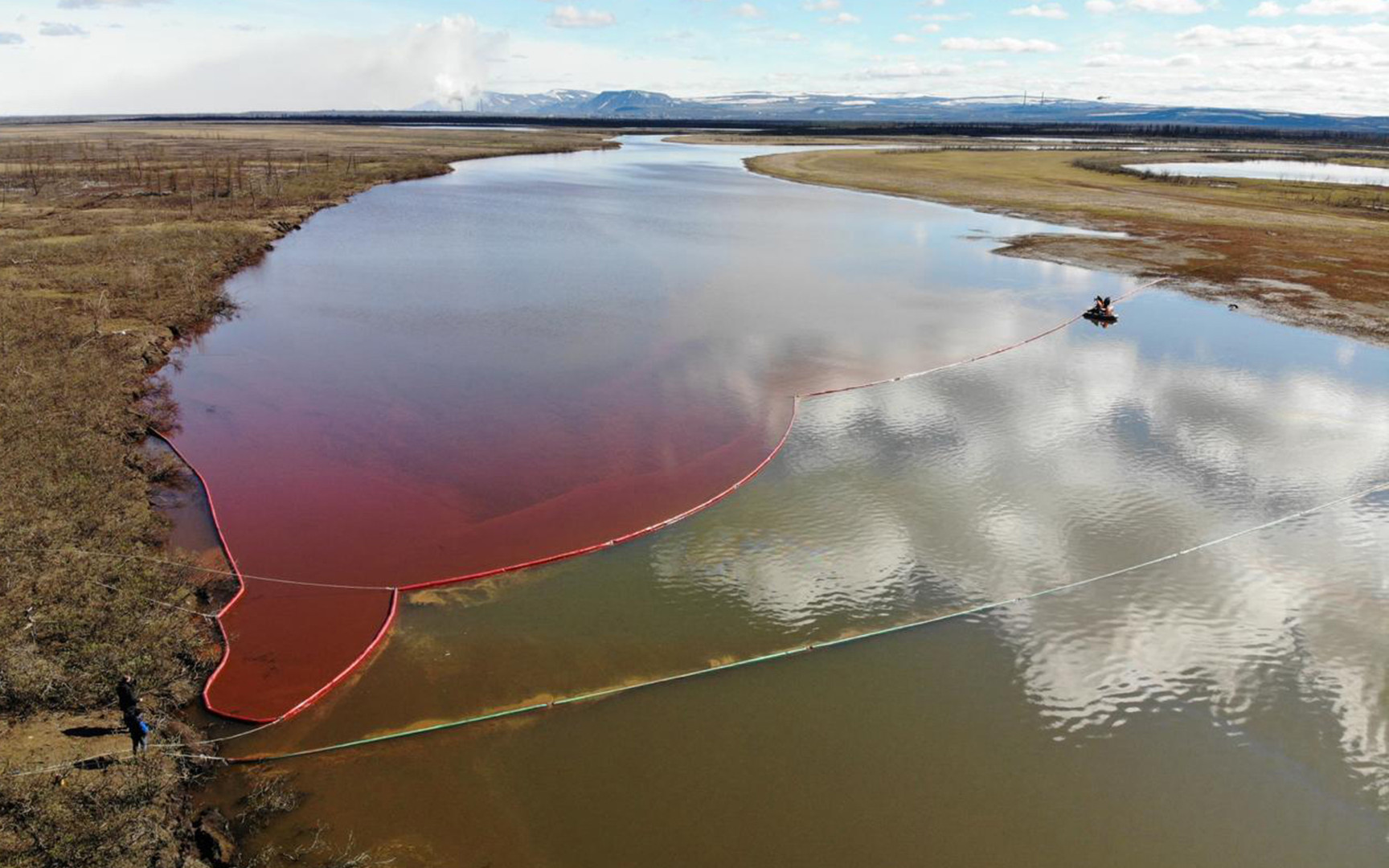Russia’s environmental watchdog Rosprirodnadzor has slapped Norilsk Nickel with a record fine of nearly 148 billion rubles, or $2.1 billion, for environmental damage caused by a major diesel fuel spill that polluted two rivers in Siberia.
"Including damage caused to water bodies as a result of pollution in the amount of 147,046,011,000 rubles and soils in the amount of 738,616,500 rubles," the watchdog said in a statement issued on Monday, adding that it sent a request to Norilsk Nickel to make a "voluntary" contribution to repair damage to Arctic waterways.
A national-level state of emergency was announced after more than 21,000 tons of diesel fuel leaked into the Ambarnaya and Dadylkan rivers in May when an aging fuel tank at the Norilsk-Taimyr Energy Company’s Thermal Power Plant No. 3 in Norilsk collapsed near the company’s main operations in the Arctic Circle. The power plant is run by a subsidiary of Norilsk Nickel, also known as Nornickel, one of Russia's largest exporters of natural resources, which is controlled by Russia’s richest man Vladimir Potanin.
Nornickel has said it believes the accident was caused by thawing permafrost which weakened the foundations of the storage tank.
The fuel seeped into the soil and nearby rivers for several days before local authorities responded to the accident. Since then, a number of criminal cases have been launched over the spill, including against employees at the plant and the mayor of Norilsk.
"The scale of the damage to Arctic waterways is unprecedented. The fine is proportional to it," RBK quoted Russia's Ecology Minister Dmitry Kobylkin as saying, citing as an example one of the worst oil spills in U.S. history – the 1989 Exxon Valdez oil spill off Alaska which, he pointed out, cost Exxon Mobil more than $5 billion in punitive damages.
Nornickel, the world's largest producer of nickel and palladium, fell by 4% after the Rosprirodnadzor released its statement, which included calculations of the cleanup costs.
Rusal, Nornickel’s second-largest shareholder, said the size of the fine was "unexpected" and voiced hopes that Potanin, Nornickel’s major shareholder, will propose sources to cover the losses at a board meeting.
"We expect that board of directors meeting will be convened in the nearest future, at which the managing partner (Potanin, who holds 34.5% of Nornickel) and the management will offer sources of coverage for losses from such an unprecedented fine," a Rusal spokeswoman said, according to RBK. "We are sure that shareholders will be able to jointly find a solution in this difficult situation."
The diesel spill is the worst accident of its kind in modern times in Russia’s Arctic region and more damage is expected as diesel fuel spilled from a tank flows toward the Arctic Ocean.
Floating barriers hastily installed across the polluted rivers have failed to contain the massive diesel fuel spill from reaching Lake Pyasino, which stretches toward the Arctic Ocean and is now threatening a nature reserve.
The 70-kilometer-long lake called Pyasino, considerably larger than Germany's Lake Constance, serves as the basin for the Pyasina river, which flows to the Kara Sea, part of the Arctic Ocean.
Norilsk, a remote city with about 170,000 inhabitants, is situated 300 kilometers inside the Arctic Circle and 2,900 kilometers north-east of Moscow.







 Armenian sappers commenced on Monday mine-clearance operations in the territories adjacent to the Saint Mary Church in village of Voskepar (Armenia...
Armenian sappers commenced on Monday mine-clearance operations in the territories adjacent to the Saint Mary Church in village of Voskepar (Armenia...
 Iran and Pakistan have signed eight cooperation documents in various fields, and agreed to strengthen ties to fight terrorism in the region.
Iran and Pakistan have signed eight cooperation documents in various fields, and agreed to strengthen ties to fight terrorism in the region.
 President Aliyev emphasized the critical role of the North-South Transport Corridor in fostering transport cooperation between Azerbaijan and Russi...
President Aliyev emphasized the critical role of the North-South Transport Corridor in fostering transport cooperation between Azerbaijan and Russi...



